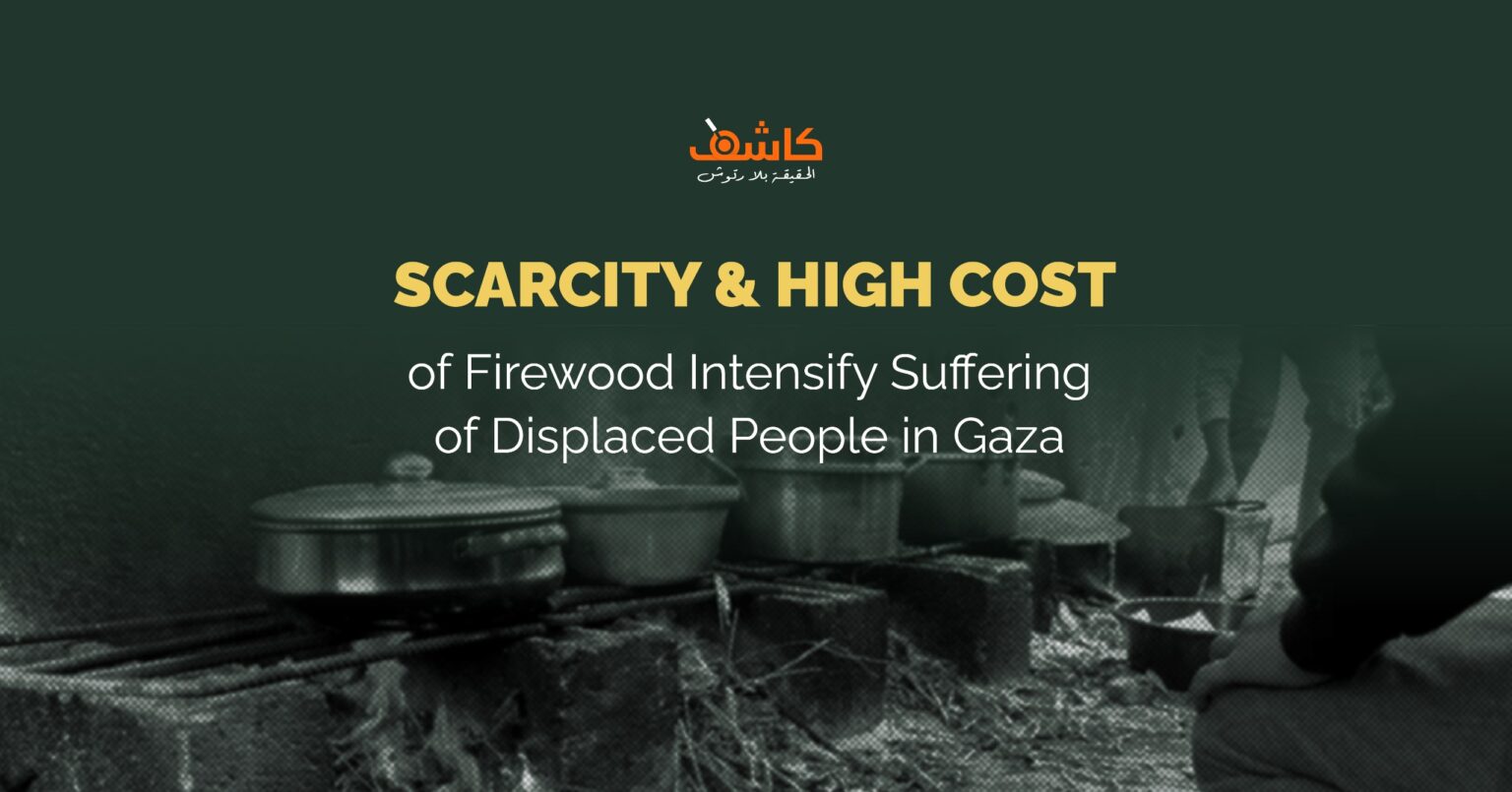Basel Mohammad Al-Saqqa
The scarcity and high cost of firewood have become an exhausting nightmare threatening the lives of displaced people in the Gaza Strip, amid a genocide that has continued for nearly two years.
Securing firewood has become a major and costly challenge in Gaza, especially as famine tightens its grip on the besieged enclave by land, sea, and air.
Skyrocketing Firewood Prices
Haniya, known as Umm Shadi, a displaced woman in the al-Mawasi area of Khan Younis, says firewood has become extremely expensive. “I can’t afford to buy it at these prices because of how hard life has become and the lack of available cash,” she says.
She continues: “Preparing food is an exhausting task, especially without any gas for cooking. It also involves serious health risks that affect our respiratory systems and harm us.”
“I struggle to gather leaves, sticks, and cardboard just to start a fire and cook for my family, which consists of my children and husband,” Hania explains.
Harsh and Tragic Conditions
Another displaced person, Sufyan (Abu Sobhi), lives with his seven family members, surviving only on patience in the face of famine and having no source of income.
He notes that the Israeli occupation military destroyed their home in the town of al-Qarara and bulldozed their land, which they had depended on for their livelihood.
“I can’t afford firewood or flour because of their skyrocketing prices and my lack of income,” he says, adding that he used to rely on social welfare assistance.
Abu Sobhi wonders aloud when this crisis will end, as he looks at his young son Ahmad, whose face shows signs of severe hunger. The boy cries, “Baba, I’m hungry… when will you bring us bread?”
Health Risks
Pulmonary disease consultant Dr. Amr al-Astal confirms that large numbers of displaced people in the al-Mawasi area have developed respiratory illnesses, mainly due to the widespread use of open fires instead of gas for cooking.
He warns citizens not to burn other flammable materials like plastic because of the serious risks they pose to the respiratory system and lungs.
Dr. al-Astal adds that hundreds of cases have been admitted to hospitals as a result of using alternative materials for cooking in al-Mawasi, Khan Younis.
The health risks of using firewood instead of cooking gas are not limited to respiratory symptoms—they also include visible skin conditions affecting many residents, particularly women and children.
Without protective equipment and with daily exposure to thick smoke and intense heat, problems like skin irritation, itching, dryness, and mild to moderate burns have become common in many homes.
These symptoms are exacerbated by the lack of access to water and cleaning supplies, leaving skin vulnerable to infections and cracking—deepening the suffering of families trying to cope with the blockade and constant power outages.
Despite repeated health warnings, displaced people continue to rely on these materials due to the lack of alternatives, further compounding their daily hardship.
At the same time, United Nations reports confirm that Gaza is now in a state of “full-scale famine,” with more than two million people suffering from food shortages amidst total collapse and halted aid deliveries to the Gaza Strip.
Amid this growing humanitarian and health catastrophe, the Israeli assault on Gaza continues, despite a UN Security Council resolution calling for an immediate ceasefire due to the widespread famine across the Strip.
